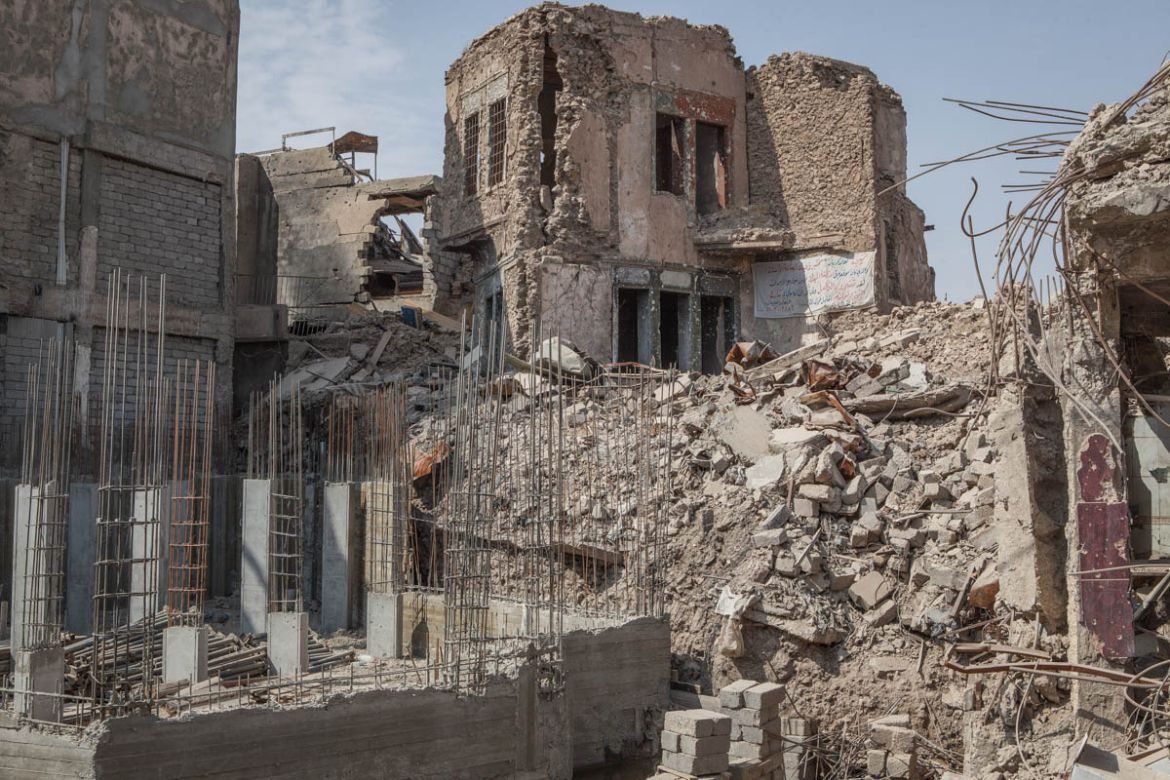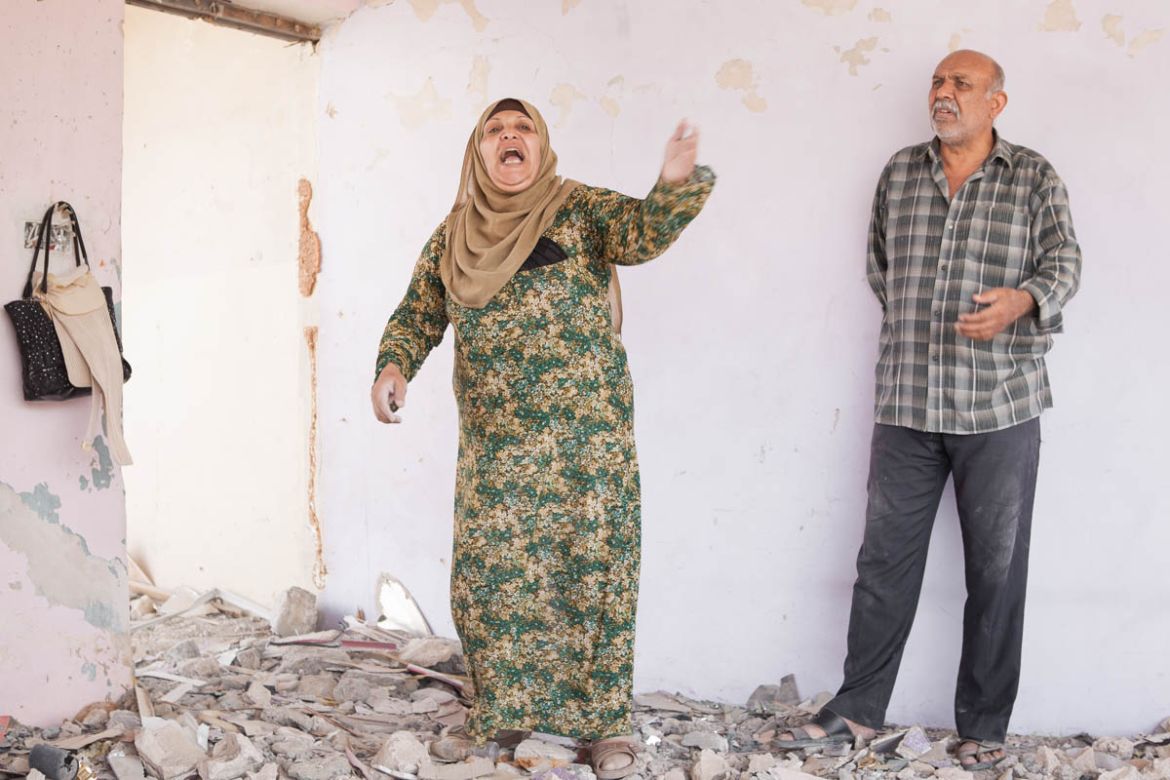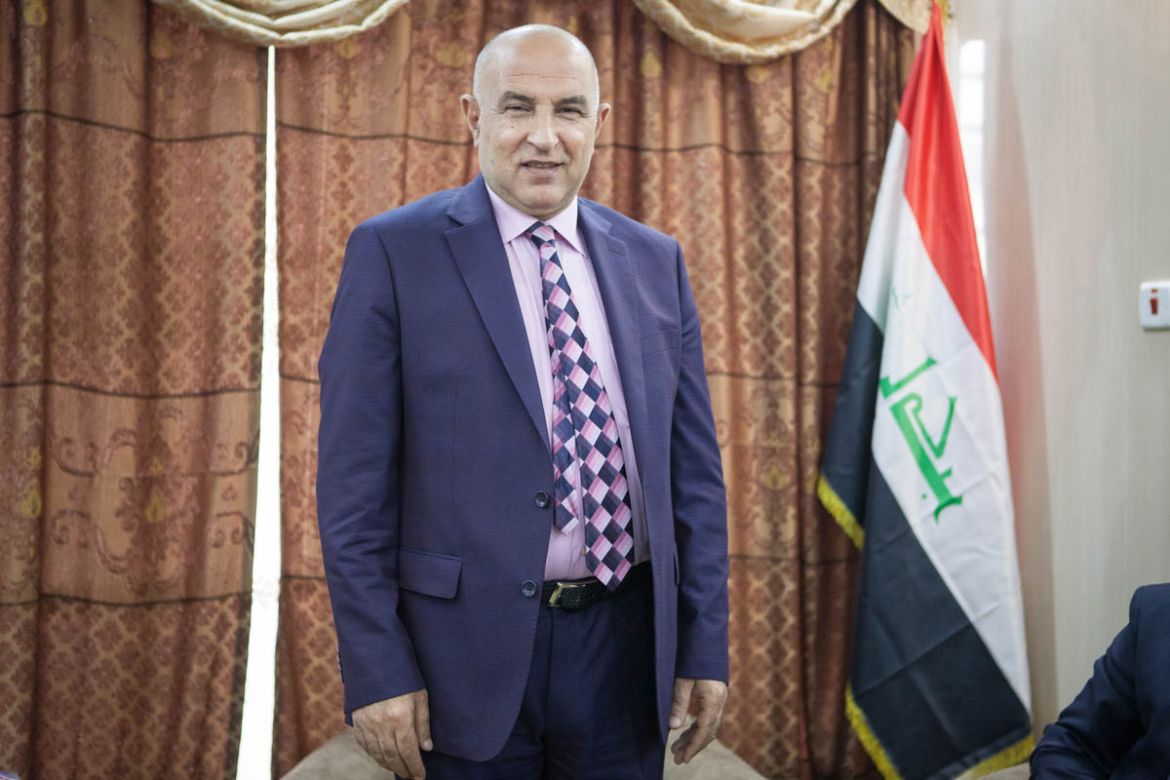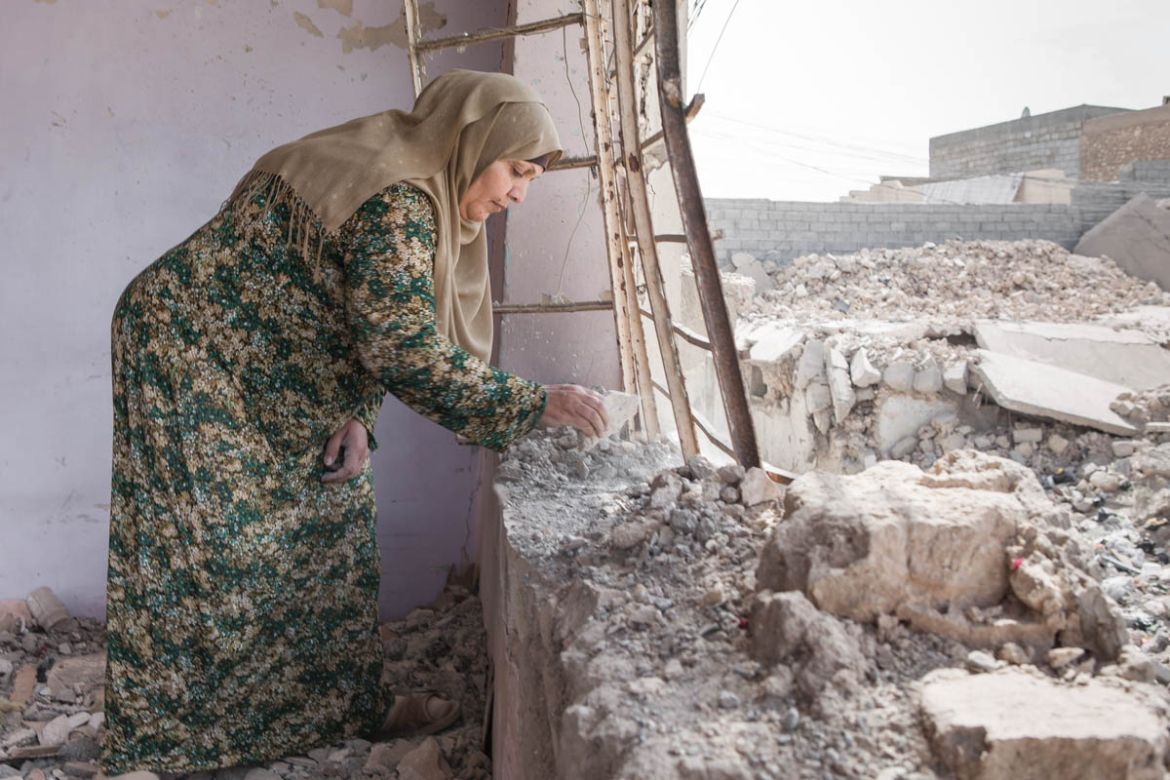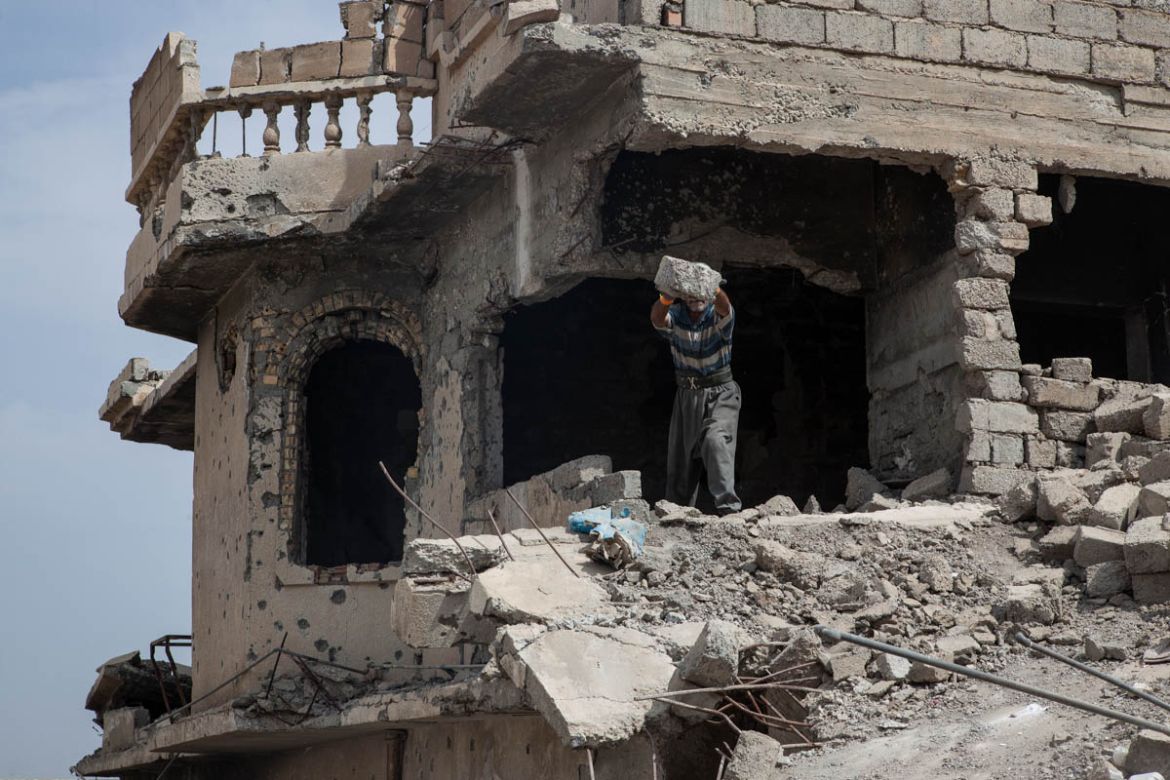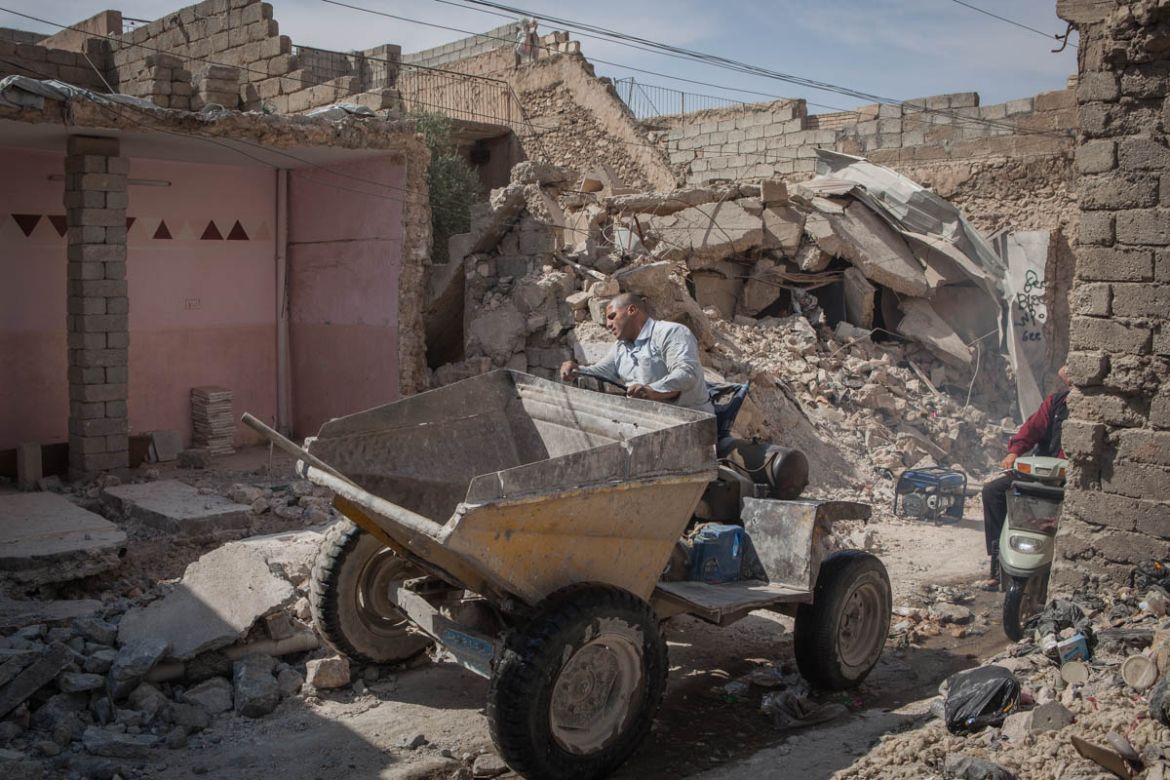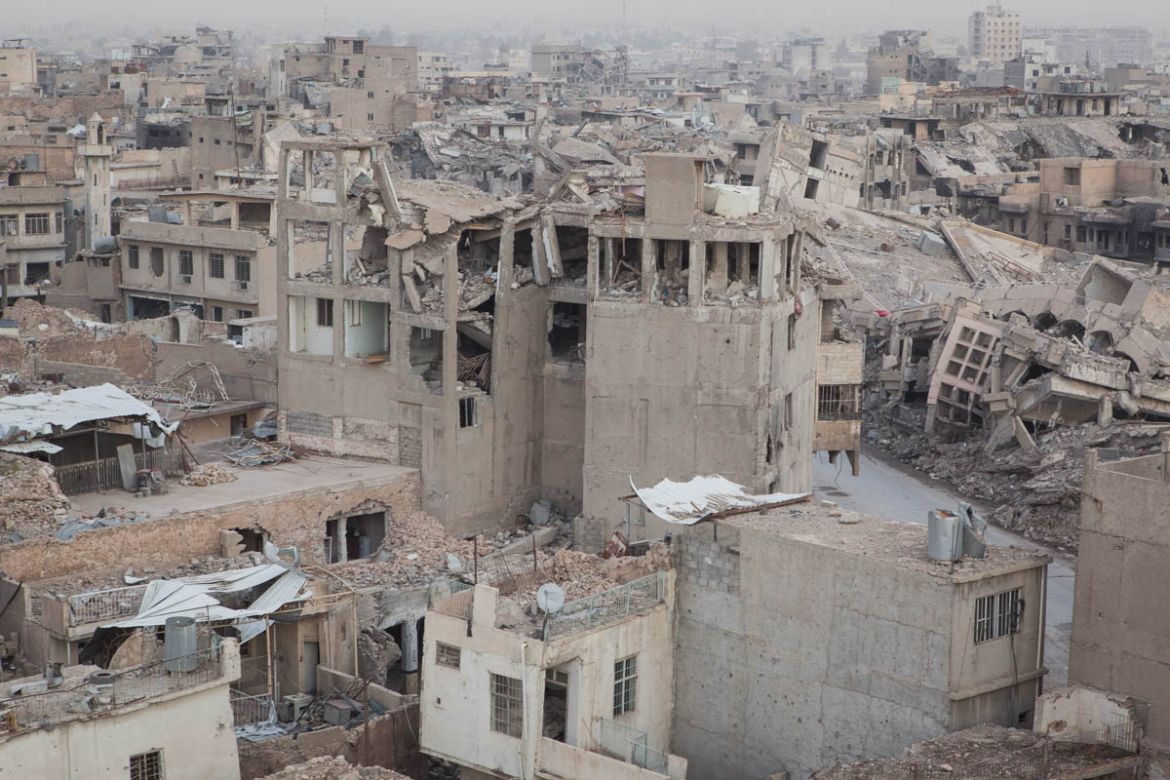In Pictures
Mosul residents left to rebuild destroyed homes
A year after the fall of ISIL, civilians rue lack of support after their homes were heavily damaged or destroyed.
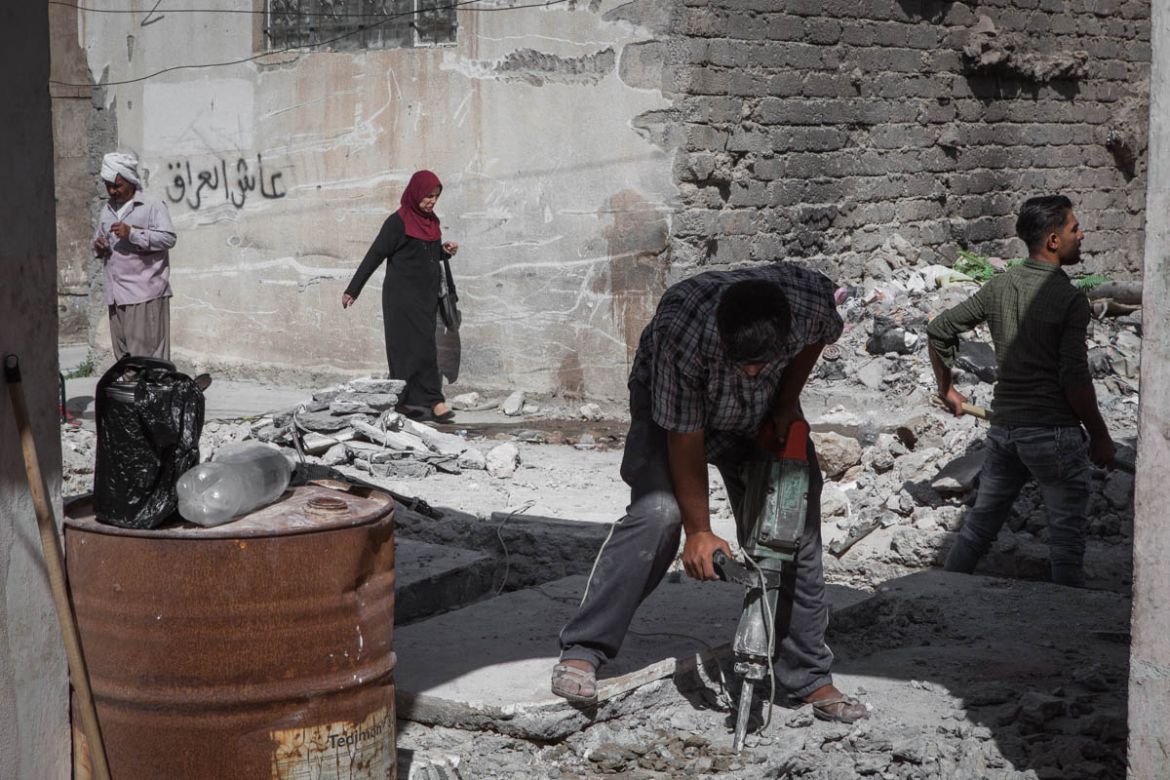
Mosul, Iraq – During the nine-month battle to retake Iraq’s Mosul from the Islamic State of Iraq and the Levant (ISIL) fighters, 54,000 houses were destroyed in and around the city.
Since July last year, when victory was declared in Mosul, the city has witnessed numerous reconstruction projects run by government organisations and NGOs.
The vast majority of these projects are taking place in the old city of Mosul, focussing mostly on cleaning the streets, helping rebuild schools and basic infrastructures, such as water supply and electricity network.
A fund of $400m was established in 2015 to help Iraq’s reconstruction.
However, the city received only $252,000 in 2017 and in 2018, the Governor of Nineveh Governorate, Nofal Hammadi, claimed to have received nothing from the fund, Mosul’s municipality chief Abdelsattar al-Hibbu told Reuters news agency earlier this year.
Furthermore, Hammadi told Al Jazeera last month that no budget was allocated to rebuild private housing in Mosul.
In the overwhelming majority of cases, civilians whose homes have been flattened are indeed forced to fend off for themselves.
Ahmed Al Ebadi, a west Mosul resident, requested financial compensation from the court earlier this year.
“I received nothing for the damage caused by the Iraqi army,” said Ebadi.
Prior to ISIL, Mosul’s predominantly Sunni population felt marginalised by Baghdad’s central government for years.
Now, many are forced into debt as they have to borrow money to rebuild their houses.
“I am a poor man, I can’t afford to pay $25,000 to rebuild my house,” said Mohammed Hazim Abbas, a resident of west Mosul.
For many Mosulians, a house is seen as a first step towards rebuilding their family life, which too got devastated by the war against ISIL.
